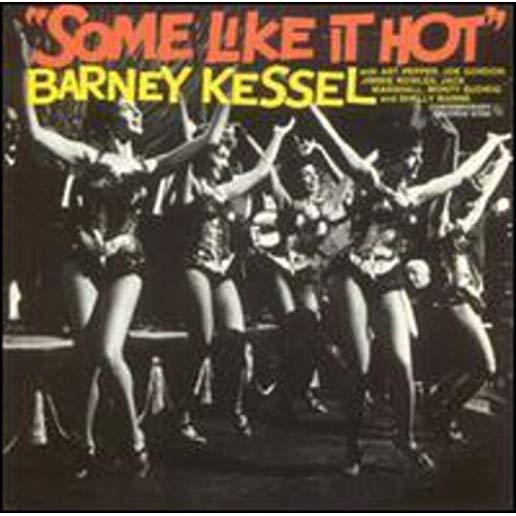
Keefe, Patrick Radden
product information
description
1UNA HISTORIA REAL DE CRIMEN Y MEMORIA EN IRLANDA DEL NORTE
Mejor libro del año 2019 según The New York Times, The Washington Post, The Times y Time Magazine GANADOR DEL NATIONAL BOOK CRITICS CIRCLE AWARD
GANADOR DEL PREMIO ORWELL
FINALISTA DEL NATIONAL BOOK AWARD En diciembre de 1972, varios encapuchados secuestraron a Jean McConville, una viuda de treinta y ocho años con diez hijos a su cargo. Nadie dudó, en aquel barrio católico de Belfast, que se trataba de una represalia del IRA. Sin embargo, el crimen no empezó a resolverse hasta 2003, cinco años después de los acuerdos de paz del Viernes Santo, al ser desenterrados los restos mortales de McConville en una playa solitaria. Cuando Patrick Radden Keefe se propuso investigar las ramificaciones de este caso, ignoraba que terminarÃa escribiendo una crónica total sobre el conflicto norirlandés que ha sido aclamada de manera unánime. Entrevistándose con decenas de testimonios, muchos de los cuales nunca antes habÃan dado su versión, retrata la profesionalización de las milicias republicanas, la represión del Estado británico, la escalada de violencia y, sobre todo, la evolución ideológica de algunos de sus protagonistas. Por ejemplo, la de Dolours Price, que se enroló en el IRA a temprana edad y estuvo implicada, entre otros atentados, en la ejecución de Jean McConville. Enmarcado en la mejor tradición del periodismo narrativo y la no ficción literaria, No digas nada es un libro que aúna historia, polÃtica y biografÃa, y que sondea las dimensiones morales de un conflicto que, medio siglo después, todavÃa levanta ampollas. ENGLISH DESCRIPTION WINNER OF THE NATIONAL BOOK CRITICS CIRCLE AWARD FOR NONFICTION A NEW YORK TIMES TOP TEN BOOK OF THE YEAR LONGLISTED FOR THE NATIONAL BOOK AWARD WINNER OF THE ORWELL PRIZE
BEST NONFICTION BOOK OF THE YEAR - TIME MAGAZINE A WASHINGTON POST TOP TEN BOOK OF THE YEAR NEW YORK TIMES BESTSELLER Named a best book of the year by The Wall Street Journal, EW, The Economist, The Chicago Tribune, GQ, Slate, NPR, Variety, Slate, TIME, Minneapolis Star Tribune, St. Louis Post Dispatch, The Dallas Morning News, Buzzfeed, Kirkus Reviews, and BookPage Named a best book of the decade by Literary Hub and EW Masked intruders dragged Jean McConville, a 38-year-old widow and mother of 10, from her Belfast home in 1972. In this meticulously reported book -- as finely paced as a novel -- Keefe uses McConville's murder as a prism to tell the history of the Troubles in Northern Ireland. Interviewing people on both sides of the conflict, he transforms the tragic damage and waste of the era into a searing, utterly gripping saga. - New York Times Book Review, Ten Best Books of the Year From award-winning New Yorker staff writer Patrick Radden Keefe, a stunning, intricate narrative about a notorious killing in Northern Ireland and its devastating repercussions In December 1972, Jean McConville, a thirty-eight-year-old mother of ten, was dragged from her Belfast home by masked intruders, her children clinging to her legs. They never saw her again. Her abduction was one of the most notorious episodes of the vicious conflict known as The Troubles. Everyone in the neighborhood knew the I.R.A. was responsible. But in a climate of fear and paranoia, no one would speak of it. In 2003, five years after an accord brought an uneasy peace to Northern Ireland, a set of human bones was discovered on a beach. McConville's children knew it was their mother when they were told a blue safety pin was attached to the dress--with so many kids, she had always kept it handy for diapers or ripped clothes. Patrick Radden Keefe's mesmerizing book on the bitter conflict in Northern Ireland and its aftermath uses the McConville case as a starting point for the tale of a society wracked by a violent guerrilla war, a war whose consequences have never been reckoned with. The brutal violence seared not only people like the McConville children, but also I.R.A. members embittered by a peace that fell far short of the goal of a united Ireland, and left them wondering whether the killings they committed were not justified acts of war, but simple murders. From radical and impetuous I.R.A. terrorists such as Dolours Price, who, when she was barely out of her teens, was already planting bombs in London and targeting informers for execution, to the ferocious I.R.A. mastermind known as The Dark, to the spy games and dirty schemes of the British Army, to Gerry Adams, who negotiated the peace but betrayed his hardcore comrades by denying his I.R.A. past--Say Nothing conjures a world of passion, betrayal, vengeance, and anguish.
Mejor libro del año 2019 según The New York Times, The Washington Post, The Times y Time Magazine GANADOR DEL NATIONAL BOOK CRITICS CIRCLE AWARD
GANADOR DEL PREMIO ORWELL
FINALISTA DEL NATIONAL BOOK AWARD En diciembre de 1972, varios encapuchados secuestraron a Jean McConville, una viuda de treinta y ocho años con diez hijos a su cargo. Nadie dudó, en aquel barrio católico de Belfast, que se trataba de una represalia del IRA. Sin embargo, el crimen no empezó a resolverse hasta 2003, cinco años después de los acuerdos de paz del Viernes Santo, al ser desenterrados los restos mortales de McConville en una playa solitaria. Cuando Patrick Radden Keefe se propuso investigar las ramificaciones de este caso, ignoraba que terminarÃa escribiendo una crónica total sobre el conflicto norirlandés que ha sido aclamada de manera unánime. Entrevistándose con decenas de testimonios, muchos de los cuales nunca antes habÃan dado su versión, retrata la profesionalización de las milicias republicanas, la represión del Estado británico, la escalada de violencia y, sobre todo, la evolución ideológica de algunos de sus protagonistas. Por ejemplo, la de Dolours Price, que se enroló en el IRA a temprana edad y estuvo implicada, entre otros atentados, en la ejecución de Jean McConville. Enmarcado en la mejor tradición del periodismo narrativo y la no ficción literaria, No digas nada es un libro que aúna historia, polÃtica y biografÃa, y que sondea las dimensiones morales de un conflicto que, medio siglo después, todavÃa levanta ampollas. ENGLISH DESCRIPTION WINNER OF THE NATIONAL BOOK CRITICS CIRCLE AWARD FOR NONFICTION A NEW YORK TIMES TOP TEN BOOK OF THE YEAR LONGLISTED FOR THE NATIONAL BOOK AWARD WINNER OF THE ORWELL PRIZE
BEST NONFICTION BOOK OF THE YEAR - TIME MAGAZINE A WASHINGTON POST TOP TEN BOOK OF THE YEAR NEW YORK TIMES BESTSELLER Named a best book of the year by The Wall Street Journal, EW, The Economist, The Chicago Tribune, GQ, Slate, NPR, Variety, Slate, TIME, Minneapolis Star Tribune, St. Louis Post Dispatch, The Dallas Morning News, Buzzfeed, Kirkus Reviews, and BookPage Named a best book of the decade by Literary Hub and EW Masked intruders dragged Jean McConville, a 38-year-old widow and mother of 10, from her Belfast home in 1972. In this meticulously reported book -- as finely paced as a novel -- Keefe uses McConville's murder as a prism to tell the history of the Troubles in Northern Ireland. Interviewing people on both sides of the conflict, he transforms the tragic damage and waste of the era into a searing, utterly gripping saga. - New York Times Book Review, Ten Best Books of the Year From award-winning New Yorker staff writer Patrick Radden Keefe, a stunning, intricate narrative about a notorious killing in Northern Ireland and its devastating repercussions In December 1972, Jean McConville, a thirty-eight-year-old mother of ten, was dragged from her Belfast home by masked intruders, her children clinging to her legs. They never saw her again. Her abduction was one of the most notorious episodes of the vicious conflict known as The Troubles. Everyone in the neighborhood knew the I.R.A. was responsible. But in a climate of fear and paranoia, no one would speak of it. In 2003, five years after an accord brought an uneasy peace to Northern Ireland, a set of human bones was discovered on a beach. McConville's children knew it was their mother when they were told a blue safety pin was attached to the dress--with so many kids, she had always kept it handy for diapers or ripped clothes. Patrick Radden Keefe's mesmerizing book on the bitter conflict in Northern Ireland and its aftermath uses the McConville case as a starting point for the tale of a society wracked by a violent guerrilla war, a war whose consequences have never been reckoned with. The brutal violence seared not only people like the McConville children, but also I.R.A. members embittered by a peace that fell far short of the goal of a united Ireland, and left them wondering whether the killings they committed were not justified acts of war, but simple murders. From radical and impetuous I.R.A. terrorists such as Dolours Price, who, when she was barely out of her teens, was already planting bombs in London and targeting informers for execution, to the ferocious I.R.A. mastermind known as The Dark, to the spy games and dirty schemes of the British Army, to Gerry Adams, who negotiated the peace but betrayed his hardcore comrades by denying his I.R.A. past--Say Nothing conjures a world of passion, betrayal, vengeance, and anguish.
member goods
No member items were found under this heading.
Return Policy
All sales are final
Shipping
No special shipping considerations available.
Shipping fees determined at checkout.







